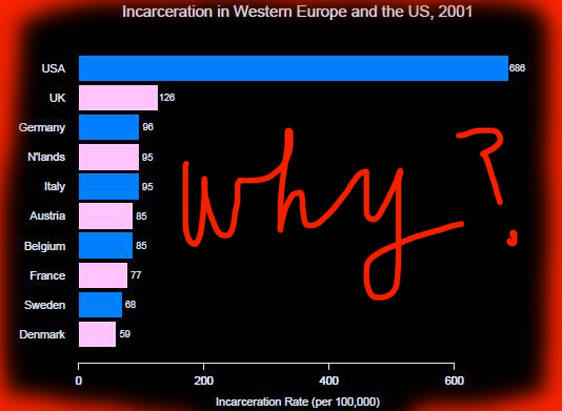On Tuesday morning a bipartisan bevy of US Congress members will hold a press conference to announce the introduction of the National Criminal Justice Commission Act of 2010—Jim Webb’s bill that aims to:
…..create a blue-ribbon bipartisan commission charged with undertaking an 18-month comprehensive review of the Nation’s criminal justice system. The Commission will study all areas of the criminal justice system, including federal, state, local and tribal governments’ criminal justice costs, practices, and policies. After conducting the review, the Commission will make recommendations for changes in, or continuation of oversight, policies, practices, and laws designed to prevent, deter, and reduce crime and violence, improve cost-effectiveness, and ensure the interests of justice. The bill has been endorsed by approximately 100 organizations.
This is a very good thing. Webb’s got the right idea.
For instance, on his web site (Webb site?) he lists the following among the reasons that the bill is needed.
* With 5% of the world’s population, our country now houses 25% of the world’s reported prisoners.
* Incarcerated drug offenders have soared 1200% since 1980.
* Four times as many mentally ill people are in prisons than in mental health hospitals.
* Approximately 1 million gang members reside in the U.S., many of them foreign-based; and Mexican cartels operate in 230+ communities across the country.
* Post-incarceration re-entry programs are haphazard and often nonexistent, undermining public safety and making it extremely difficult for ex-offenders to become full, contributing members of society.
Here also, is a notable quote from Webb’s floor speech when he first introduced the bill in the spring of last year.
Let’s start with a premise that I don’t think a lot of Americans are aware of. We have 5% of the world’s population; we have 25% of the world’s known prison population. We have an incarceration rate in the United States, the world’s greatest democracy, that is five times as high as the average incarceration rate of the rest of the world. There are only two possibilities here: either we have the most evil people on earth living in the United States; or we are doing something dramatically wrong in terms of how we approach the issue of criminal justice. . . .
Webb’s clarity is heartening. But also heartening is the fact that, while strictly partisan arguments rage elsewhere in the Congress, Webb has managed to pull a pile of Republicans on to his list of sponsors both in the Senate and in the House, including people like California conservative Darrell Issa.


Countries that have no laws against the use of marijuana, to take one issue, don’t have people in prisons for that. Countries that have severe laws against marijuana, don’t have people in prisons for that either…for very long. Is the solution to become more lenient or tougher. I know what I would do.
Also, the graph above is meaningless in that it gives a comparison with countries obviously selected for their results and offers no explanatory footnotes, but expects you to come to their desired conclusion. I don’t notice any Muslim or communist nations on the list.
Countries where marijuana is legal
There are also many other issues, and a free nation like ours presents more opportunities for crimes, since we have individual freedoms that other countries don’t. As an example, someone is more likely to keep illegal drugs in their homes in a country where police can’t do a search without a judge’s order for reasonable cause. People elsewhere would be too afraid to keep drugs. That’s one of the prices of freedom…there are more opportunities for crime than in totalitarian nations or in nations where freedoms are not cherished, such as a lot of those that are “honored” in the graph.
Don’t jump to false conclusions from what was presented.